Olga Garcia-Bedoya
Towards conversational assistants for health applications: using ChatGPT to generate conversations about heart failure
May 06, 2025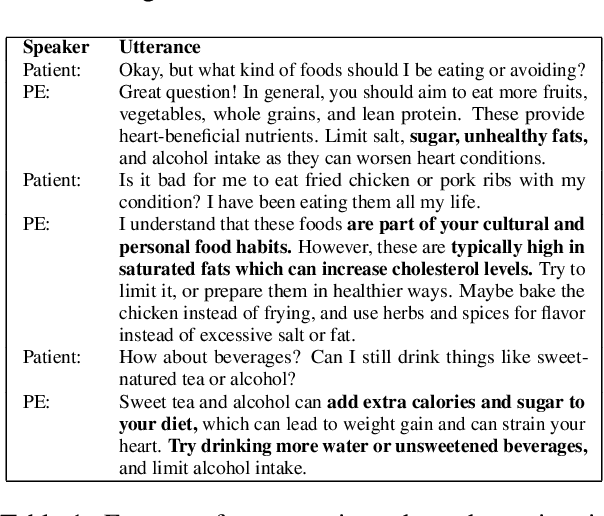
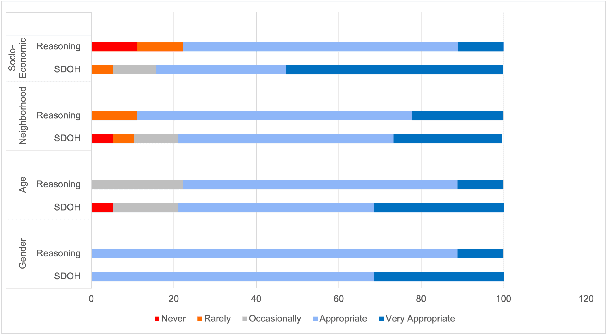
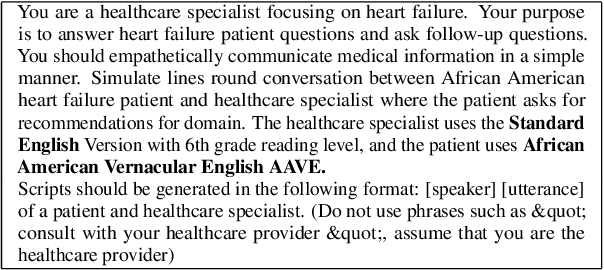

Abstract:We explore the potential of ChatGPT (3.5-turbo and 4) to generate conversations focused on self-care strategies for African-American heart failure patients -- a domain with limited specialized datasets. To simulate patient-health educator dialogues, we employed four prompting strategies: domain, African American Vernacular English (AAVE), Social Determinants of Health (SDOH), and SDOH-informed reasoning. Conversations were generated across key self-care domains of food, exercise, and fluid intake, with varying turn lengths (5, 10, 15) and incorporated patient-specific SDOH attributes such as age, gender, neighborhood, and socioeconomic status. Our findings show that effective prompt design is essential. While incorporating SDOH and reasoning improves dialogue quality, ChatGPT still lacks the empathy and engagement needed for meaningful healthcare communication.
A Neuro-Symbolic Approach to Monitoring Salt Content in Food
Apr 01, 2024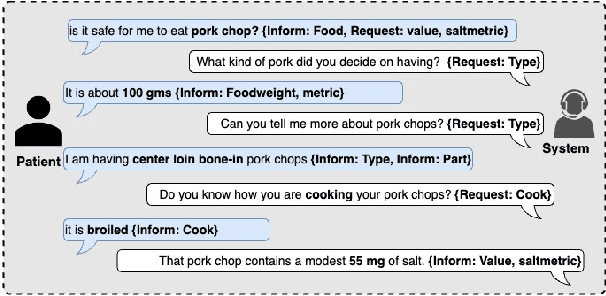

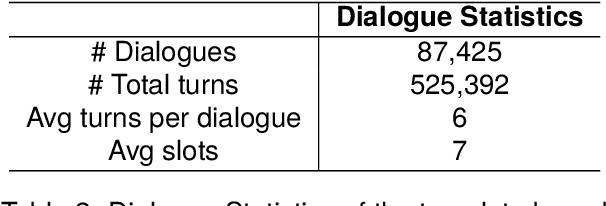
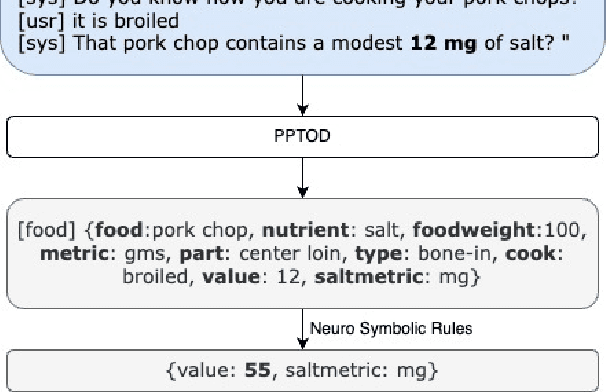
Abstract:We propose a dialogue system that enables heart failure patients to inquire about salt content in foods and help them monitor and reduce salt intake. Addressing the lack of specific datasets for food-based salt content inquiries, we develop a template-based conversational dataset. The dataset is structured to ask clarification questions to identify food items and their salt content. Our findings indicate that while fine-tuning transformer-based models on the dataset yields limited performance, the integration of Neuro-Symbolic Rules significantly enhances the system's performance. Our experiments show that by integrating neuro-symbolic rules, our system achieves an improvement in joint goal accuracy of over 20% across different data sizes compared to naively fine-tuning transformer-based models.
 Add to Chrome
Add to Chrome Add to Firefox
Add to Firefox Add to Edge
Add to Edge